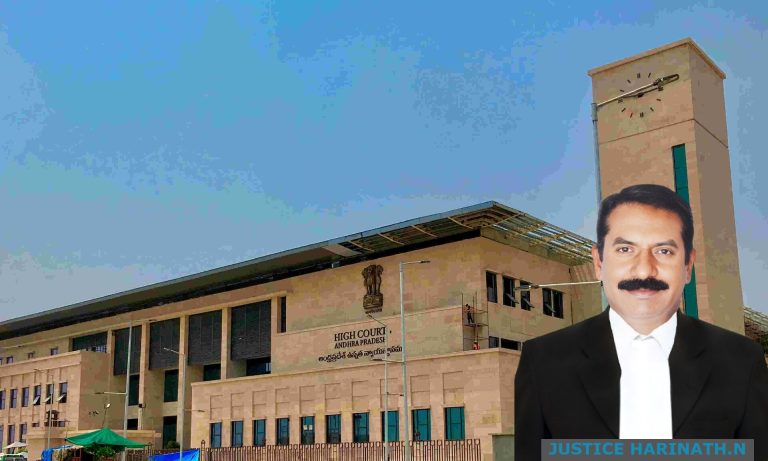The Andhra Pradesh High Court has upheld the dismissal by Sri Bramarambha Mallikarjuna Swamy Varla Devasthanam (through the Managing Director) of the services of an employee who ceased to be a Hindu by converting to Christianity, as the act was contrary to the requirements of the religious institution.
The Court held that the termination was in accordance with the constitutional powers, particularly Article 16(5) of the Constitution of India and the statutory power conferred by Rule 3 of the Hindu Charitable and Religious Institutions and Endowments of Andhra Pradesh . Servants Service Rules, 2000 (AP Rules, 2000).
As per Rule 3 of the AP Rules, 2000, every functionary and servant of a religious institution or foundation shall be a person professing the Hindu religion and he shall cease to hold office when he ceases to profess the religion Hindu.
While referring to the petitioner’s argument after the fact, a bench of Justice Harinath.N observed, “…If this Court has to consider the contention of the petitioner that he married a Christian girl without converting as a Christian, then the marriage should have been solemnized in accordance with the provisions of the Special Marriage Act, 1954. marriage certificate is required to be issued under section 13 of the Special Marriage Act, no certificate under section 13 has been issued in the case of the petitioner in respect of his marriage, this indicates that the petitioner, in order to circumvent Rule 3 of the AP Charitable and Office Holders of Hindu Religious Institutions and Endowments and Servants Service Rules, 2000, have accepted this plea…”.
Lawyer Dr Sireesh Anumula appeared for the petitioner and Permanent Council G. Ramana Rao appeared for staffing departments.
The petitioner was appointed as Registrar Assistant in the office of the 4th respondent, Sri Bramarambha Mallikarjuna Swamy Varla Devasthanam, on compassionate grounds in 2002, under which he married a girl of his choice in 2010 and the marriage was solemnized in a pastoral cathedral church. in Nandyal of Kurnool district.
A complaint was filed before Lokayukta alleging that Rule 3 of the AP Hindu Religious and Charitable Institutions and Endowments Rules, 2000 is thereby violated as the petitioner concealed his religion at the time from his employment for humanitarian reasons.
Subsequently, the petitioner was dismissed from his position as a records assistant. Now the petitioner in his explanation has contended that he did not hide his religion and his caste and school leaving certificate issued by the competent authorities revealed his caste as Indian, Hindu, Mala, Caste Community listed.
The petition was therefore filed on two grounds, one that no opportunity was given to the petitioner to defend his case during the departmental inquiry, and the other that the fact of marrying a girl belonging to Christianity should not be considered a conversion to Christianity. . It was further submitted that the petitioner still professes Hinduism.
The court, however, refused to accept any of the grounds given by the petitioner, noting the fact that he had not filed the marriage certificate either before the investigating officer or in the pleadings of the writ petition .
“As can be seen from the copy of the extract from the marriage register at the Holy Cross Cathedral, Nandyal, filed by the respondents, the name of the petitioner and his wife appeared in the column, the name of the parties and the Christian religion. The petitioner put his signature on the said clerk. It is also mentioned that a Rt. Rev. Dr. GT Abraham appears to have attended the marriage ceremony. The said extract amply clarifies that the petitioner was aware of the fact that he is a Christian and that his marriage is taking place with a Christian woman and that the marriage is celebrated in a church according to Christian rites and church formalities,” the bench further noted in the order.
Case Title: P. Sudharshan Babu v. Government of Andhra Pradesh


